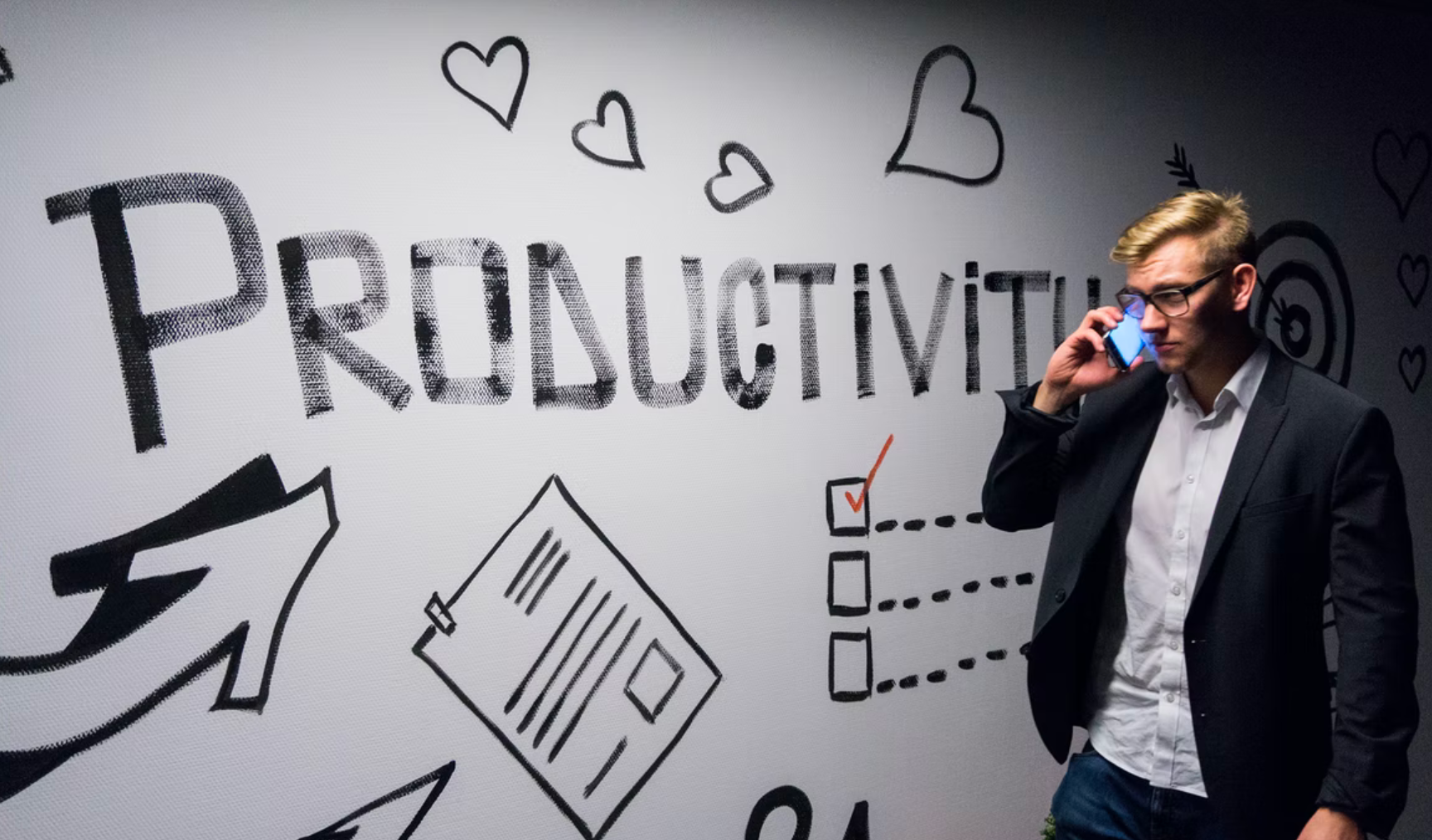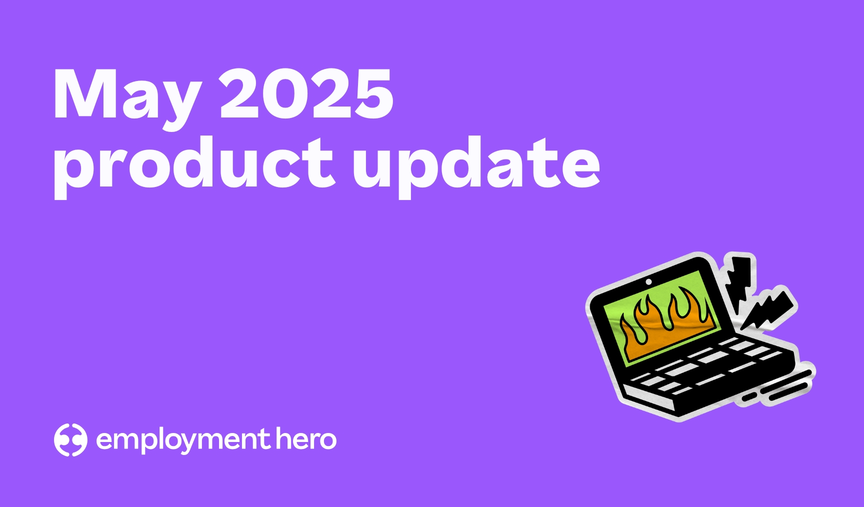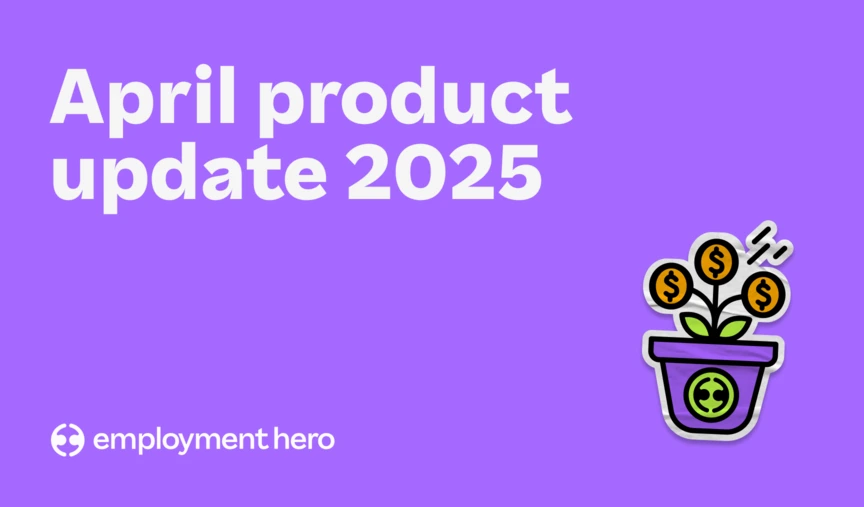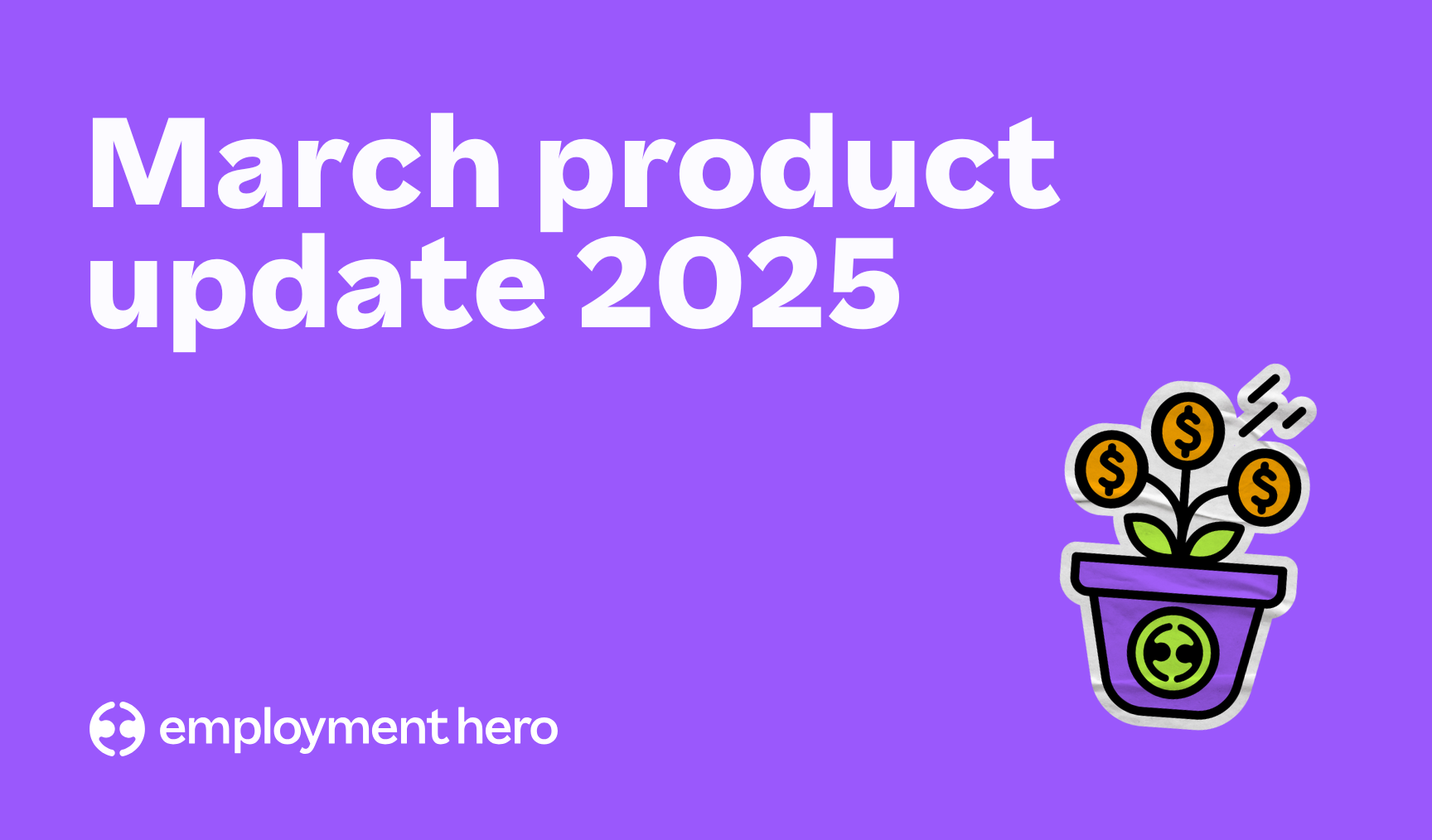What is toxic productivity, and how do we navigate it in the workplace?
Toxic productivity can be a major drain on mental health and wellbeing. Here’s how to identify it and take steps to mitigate its impact on your life.

Contents
Hands up if you were guilty of trying to make the most of your free time during the pandemic lockdowns. Did you feel restless, just reading a book in bed with no plans for the weekend? Or did you pressure yourself to master a new skill — baking banana bread perhaps, or learning a new language?
If that sounds all too familiar, you probably suffer from toxic productivity. It’s the constant struggle of needing to do something. And you can’t take a peaceful break or truly enjoy your downtime, because your mind won’t stop thinking about your to-do list.
If things have already progressed to an extreme stage where you’re always busy with a packed schedule, stressed out over a 1001 minor things, and neglecting your own health because you want to be productive — it’s time to take a step back and recognise what’s going on.
Productivity is generally seen in a positive light, which is why it can be difficult to recognise the signs of a toxic mindset. Thankfully though, once you’re aware of your inclination to overwork at the expense of other aspects in your life, you can take concrete steps to shift away from that. There’s more to life than just work.
What is toxic productivity at work?
It’s the hustle culture. The need to be always-on and always-available, working hard and as efficiently as possible. Early mornings and late nights are glamorised and shown off like a badge of honour. “Oh you did 12 hours of work yesterday? I did 15.”
Productivity is prioritised above all else, and it’s that constant push to rise and grind, rinse and repeat. You’ve got a full time job? That isn’t enough these days — everyone has a side hustle or two.
There’s an air of self-imposed competition at work: you find the need for urgency and speed in completing tasks, standing out amongst your peers, and even when you’re finished with a project, it feels like you could have done more. There’s always a new goal to chase, a new task to deliver.
Resting and unplugging from all the noise around us is crucial because it not only brings about a whole host of benefits, it’s also needed for true productivity. Without any rest, you’re prioritising quantity of work over quality. And that’s not ideal for both you and the company.
How can you produce any valuable work when you’re running on empty? Once you’ve exhausted every ounce of effort, you’ll have nothing left to give.
“Toxic productivity can make us feel like a failure if we’re not constantly ‘doing’. When toxic productivity is leading your life, you judge yourself every day for what you haven’t done, rather than looking at what you have accomplished.” — Simone Milasas
What causes and perpetuates toxic productivity?

1. Action bias
This obsessive need to always be productive, regardless of the cost to your health, relationships, and life can be linked to ‘action bias’, which is our tendency to favour action over inaction.
Action is seen as superior to inaction. Modern society equates busyness and doing something with productivity. This perpetuates a destructive cycle where individuals react by actioning — because it gives the impression that something is being done, when in actual fact, the results are non-existent or negative.
2. Social media
The glorification of slogging day-in day-out relentlessly is plastered all over social media — where success is attributed to hustling. Influencers, entrepreneurs, and business owners post day-in-my-life videos that show them carrying out productive routines: going to multiple events and meetings, creating content and churning out work non-stop.
It’s idealised and not realistic — how many actual days in a year are spent that way? People only see the perfect highlight reels that these influencers want to show, not the downtimes where they are struggling and not doing anything worth mentioning.
With everyone bragging about how they’re living their best lives, it’s easy to feel guilty if you’re not making the most out of the time you have, and doing something productive like everyone else.

3. Business leaders
Moguls like Alibaba’s Jack Ma have called the highly controversial overtime culture in China — a ‘996’ schedule where workers work from 9am to 9pm, six days a week — a “huge blessing”. One of the most famous entrepreneurs in China who was born poor, did not succeed academically, but managed to build a conglomerate and one of the biggest e-commerce sites in the world, he believes that employees must be prepared to work 12 hour days if they want to succeed.
Elon Musk, CEO of Tesla, SpaceX, The Boring Company, and Neuralink, also famously said that “there are way easier places to work, but nobody ever changed the world on 40 hours a week.” He believes that people need to work 80 to over 100 hours per week to ‘change the world’.
With many high-profile business leaders professing their support for working excessively hard overtime, it’s no wonder society equates it with the reason for achieving success.
4. Uncertain times

The pandemic, which caused a monumental shift towards hybrid or remote work, has also further blurred the boundaries between work and life. It’s hard to disconnect from work when your laptop is merely a few steps away.
Kathryn Esquer, psychologist and founder of the Teletherapist Network, noted that many people fell into patterns of toxic productivity during the pandemic — because regular routines disappeared, and suddenly everyone had unprecedented amounts of free time. In the midst of uncertainty, those who had not been laid off held onto work for a sense of security. Everything else was uncertain, but because work was the main thing people still had, it propelled individuals into becoming a virtual work martyr.
Rather than use free time to rest and recharge personal batteries, many opted to fill those hours with work instead — “as a way to feel worthy, fulfilled, and in control,” Esquer said. Being productive helps to take our mind off things and gives us a dopamine hit, albeit temporarily. That’s why when we’re faced with stressors or threats beyond our control, we tend to focus on small things that we can control — such as cleaning the house, or excelling at work.
But being productive is only a temporary bandage. It doesn’t address the actual stress and discomfort you feel.
Signs you’re falling into a toxic productivity trap
Achieving a certain level of productivity is healthy, that’s why it can be hard to identify the line where your work ethic starts to become toxic. Recognising that you have a problem with toxic productivity is the important first step — here are the red flags to look out for.
1. Poor mental health
Do you feel a constant sense of work-related guilt? Like you should be doing more, and that if you’re not doing something, you’re just wasting your time away?
You set unrealistic expectations, and when you don’t finish your unattainable plans for your day, you’re convinced that your workload isn’t the issue, it’s you. Even though you’ve accomplished a decent amount of tasks.
You feel guilty for falling behind and not achieving more, and start the self-loathing process of beating yourself up for not being as focused or efficient as you should be. Then you pressure yourself to perform even better the next day, and the cycle repeats.
If you’re constantly anxious, worried, or depressed, and you feel disconnected from the things that used to bring you joy — that’s a big warning sign.
2. Neglected work-life balance
It’s completely normal to pull long days every once in a while for a huge project, but choosing to work overtime voluntarily on a regular basis is indicative of toxic productivity.
If you’re working late nights, on weekends, and replying to emails or work messages in your downtime — how many hours do you actually have to yourself? Your relationships with your partner, family, and friends may be suffering if you’re always choosing to prioritise work over spending quality time with them.
The key thing to note is that there is a difference between toxic productivity and overworking — one is by choice, and the other is by necessity. If your job doesn’t require you to push yourself that hard and it’s completely because of self-imposed expectations, it’s time to reflect on the reasons behind it and stop yourself from doing so.
3. Constant exhaustion and burnout
Toxic productivity can seem like you’re constantly speeding ahead like a bullet train, except there are no brakes in place. Trying to work at your full capacity all the time can take a serious toll on both your physical health and mental health.
It isn’t sustainable at all, and eventually leads to burnout — an occupational phenomenon we’re all too familiar with. Our Wellness at Work 2022 report found that 53% of employees are feeling burnt out from work, which erodes their motivation, causing high turnover as well as low workplace morale.
If you wake up every morning feeling exhausted and fatigued, that’s not something to accept as normal. It’s a sign that you’ve been pushing yourself too hard.

4. Evaluating the purpose of every action
When you suffer from toxic productivity, you tend to want the activities you do to have a purpose. What does this lead to? What is the end goal? Is it the best way of using my time or should I do something ‘better’? Am I filling up my calendar with as many things as possible?
Some activities might feel like a waste of time if they don’t help you to achieve your goals. Spending some quiet time alone, or hanging out with friends and family may seem ‘unproductive’ — because you don’t see the tangible results it can give you. That leads to a very toxic mindset of placing a value on everything you do, where you just can’t sit and appreciate a moment for what it is anymore.
How to navigate toxic productivity at work
It’s tempting to use productivity as a benchmark for your self worth — but the key is constant productivity, not excessive standards of productivity. It’s not about pushing your limits and being a workaholic 24/7, it’s a long distance marathon where you have to pace yourself.
There’s a reason why self care is so important if we want to be performing at our best — we all need adequate rest, sleep, and quality time with ourselves and our loved ones. When your mental health and physical health are well taken care of, only then can you bring your best self to work.
Here are some ways you and your team can break the cycle of toxic productivity, and restore much needed work-life balance.

1. Set clear boundaries
To break the cycle of toxic productivity, you need to clearly demarcate work time and personal time. This is especially important for remote workers who deal with blurred lines.
Where possible, try to maintain a physical barrier between your professional and personal lives. If you have space for a home office or study in a separate room — that’s perfect. It helps to compartmentalise things, and try to keep all work-related tasks designated to that room (and not the living room couch or your bed). Even if you’re working from the living room at home, try to organise it neatly and pack things away when you’re done for the day. You’ll find that keeping work out of sight helps to keep it out of mind too.
The same rule applies to digital workspaces — if you have work email and message notifications turned on all the time, that’s going to distract you from getting the rest you need. Being always-on and available 24/7 is a fast pass to getting burnt out, and you don’t want to be experiencing that. Set time periods for your notifications, so you stop receiving them after work hours. That way, you can disconnect completely, and if your team needs to contact you urgently, let them know that they can send you a text or call.
Make sure you give yourself (and your team) clear start and finish times too. That way, everyone is aligned on expectations and can log off without guilt. And if you’re a manager, make sure that these boundaries are adhered to and respected. Avoid sending or responding to messages on your days off or outside work hours, and ensure that your team does the same. Detach completely while you’re off work, so you can be focused and present when you come back.
2. Master the art of prioritising
With clear boundaries set in place, the next step is to prioritise your tasks effectively. Set realistic goals to complete within a reasonable time frame. While you’re setting the time frame, be sure to factor in some buffer time because you’ll need breaks along the way.
Here at Employment Hero, we like to use OKRs to help guide our goals at work. They’re created top-down and bottom-up, so employees have visibility and control over their roles and expectations at work, and how that ladders up to team objectives and subsequently company objectives.
Instead of mindlessly working excessive hours and pushing yourself to unhealthy extremes, having a clear structure of your goals at work helps you identify what tasks to prioritise. Differentiate the tasks that are more urgent and must be done immediately, versus what can wait.
When you learn how to prioritise your to-do list accordingly, you’ll be able to achieve more realistic goals, focus on the key tasks ahead, delegate if necessary, and even delete some items. Work smarter, not harder.
3. Breaks, breaks, breaks

Building in time for rest is crucial — we’re not robots. No one can keep working continuously non-stop! Besides, it’s beneficial to take short breaks in between work, because sometimes you can get lost in it all when you’re so focused. Having a brief intermission allows you to take a step back, rest, and come back to it with fresh eyes — it’s also known as ‘goal reactivation’.
Extensive research has shown that having sporadic breaks increase productivity and creativity. It also replenishes our energy and improves decision-making. If you find it hard to tear yourself away from the desk sometimes, schedule strategic 15-minute breaks throughout the day to prevent yourself from overworking.
An additional way to incorporate regular breaks into your routine is through the 3M framework — which highlights three types of breaks you need:
- Macro breaks — A half or full day off per month, like hikes or day trips;
- Meso breaks — 1 to 2 hours per week, like practising a hobby, playing a sport; and
- Micro breaks — A few minutes several times a day, like quick walks, stretching, and meditation.
These breaks don’t mean kicking back and scrolling mindlessly through your phone — you need to make it intentional and focus on disconnecting psychologically from work. Carving out these chunks of time is important to practice ‘professional detachment’, and remind yourself that your role at work does not define your self-worth entirely.
Lastly, we know that sometimes your schedule can get really packed — but please don’t dismiss your lunch breaks either. Take them and have them the way you like, don’t rush through it or sit at your desk finishing it.
4. Seek help from a mental health professional
Mental health is just as important as physical health. We all struggle with it in different ways, and just as you would visit a doctor when you’re feeling unwell, it’s important to seek help from a mental health professional when you’re overwhelmed by negative emotions.
If you have a great workplace wellness program to tap on, good on you! Having access to an Employee Assistance Program (EAP) provides a safe space where you can have free and confidential counselling sessions.
Toxic productivity is often a manifestation of underlying feelings which haven’t been addressed head-on, such as low self esteem, fear of failure, imposter syndrome, constantly comparing yourself to others, or general stress from work or other factors. Rather than letting them fester, it’s important to learn how to process them in a healthy way.
Drowning yourself in work isn’t the solution you’re looking for — a mental health professional will be able to guide you with relevant tips and tricks on dealing with your emotions.
Go the extra mile to practice self care
It can be hard taking care of yourself when you’re constantly prioritising work projects over self care. Avoid toxic productivity and workplace burnout by really making the effort to do things which make you happy — it can be as simple as a morning walk, visiting your favourite cafe for a coffee and a croissant, or indulging in reality TV.
Focus on unwinding and de-stressing. When you’re caught up in toxic productivity, you might attach goals to things even outside of work. You don’t just want to go for a run, you want to train for a marathon. You don’t just want to read a book, you want to complete your aim of reading 50 novels this year. It’s exhausting attaching productivity to every single aspect of your life, and sure, whilst it can be fulfilling for some, it’s toxic when you set goals that don’t even inspire or motivate you.
Instead of feeding your need for productivity, why not get comfortable with doing absolutely nothing? Be intentionally unproductive. You don’t have to be hitting a target all the time.
Learn more about wellness at work today
It’s time to stop obsessively chasing that ‘make-the-most-out-of-every-minute’ attitude, and learn how to strike a healthy balance.
Our Wellness at Work 2022 report has everything you need to know about workplace wellbeing.
Related Resources
-
 Read more: Product Update: May 2025
Read more: Product Update: May 2025Product Update: May 2025
Follow our May 2025 product update as we share all of the latest and greatest features we’ve released over the…
-
 Read more: Product Update: April 2025
Read more: Product Update: April 2025Product Update: April 2025
Follow our April 2025 product update as we share all of the latest and greatest features we’ve released over the…
-
 Read more: Product Update: March 2025
Read more: Product Update: March 2025Product Update: March 2025
Follow our March 2025 product update as we share all of the latest and greatest features we’ve released over the…








